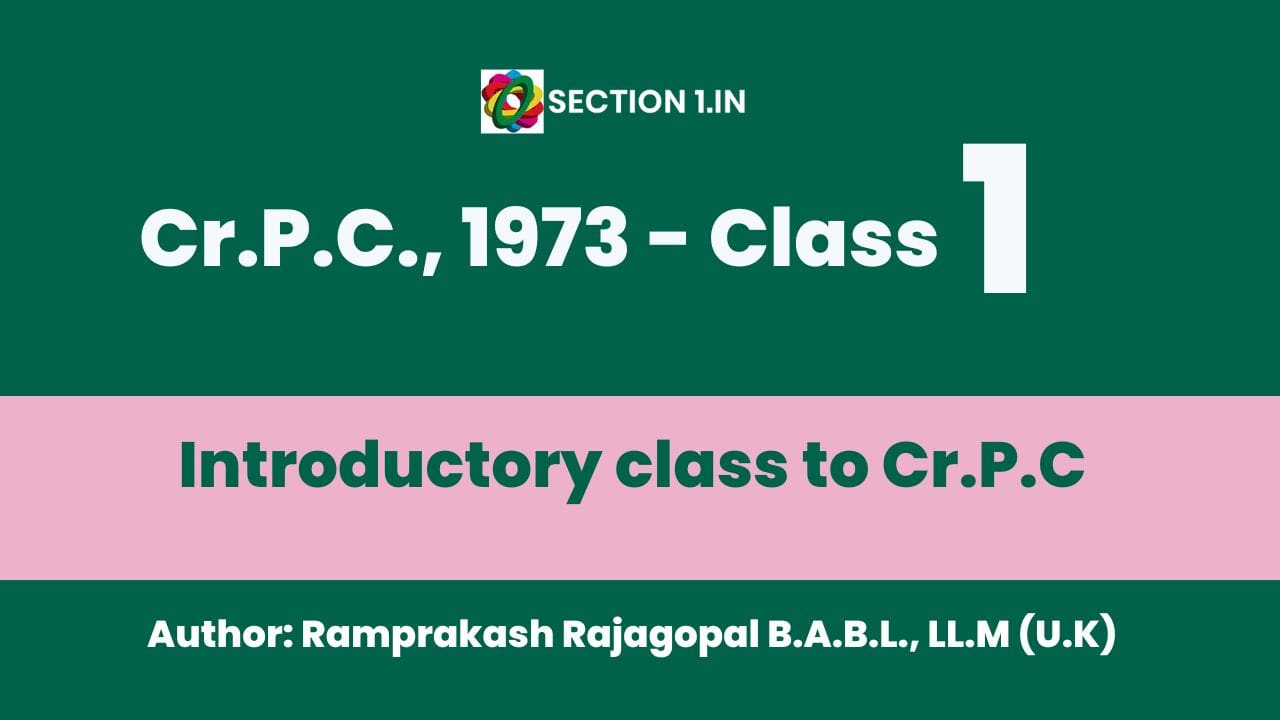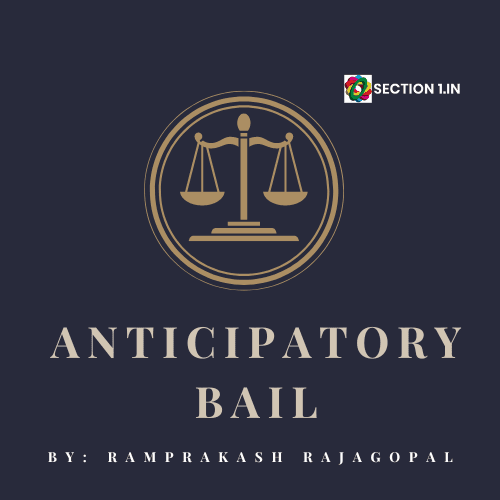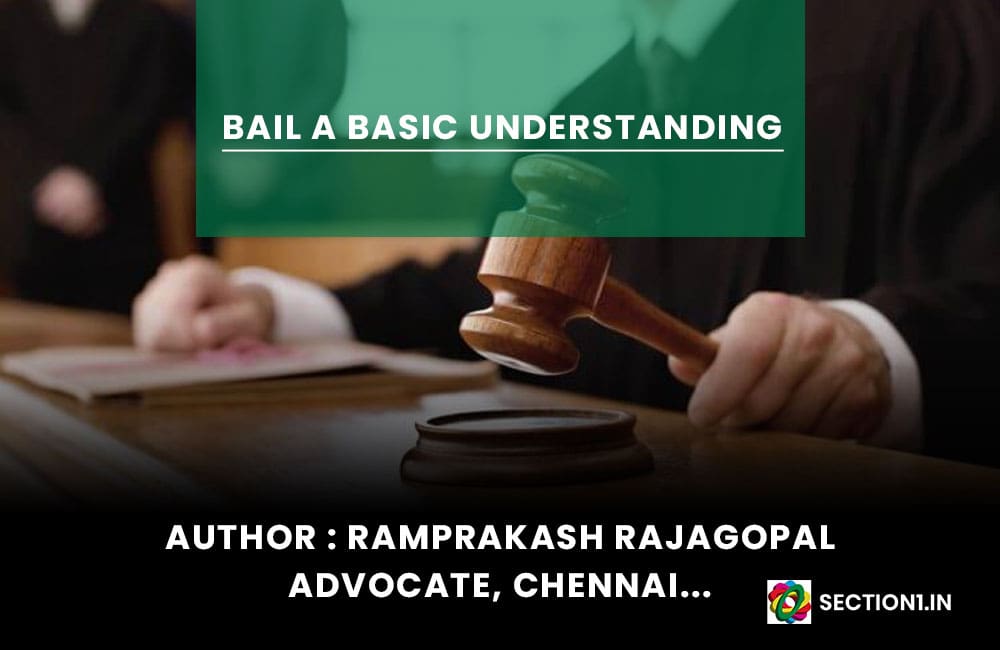GIST OF PROCEDURES
ON POLICE REPORT:
1. Information (ss. 154 & 155 cr.p.c) – Power to start investigating the offence (s. 156 cr.p.c either Any officer including Higher official u/s 156(1) r/w 154(3) and s. 36 cr.p.c or by the Learned Judicial Magistrate (or having original jurisdiction) u/s 156(3) cr.p.c – How? By informing the jurisdictional Magistrate and proceed to the spot either in person or depute one his sub-ordinate (s. 157 cr.p.c) – Investigation Officer can start investigation even without information received (see section 157 cr.p.c).
2. Investigation starts – by collection of facts and materials – how – by calling upon requiring the presence of the witnesses (160) – recording the statements of the witnesses (s. 161 cr.p.c) – recording of statements are by way of no threat or inducement (ss. 163 Cr.P.C & 24 IEA) – If necessary witnesses may be forwarded to the magistrate to record their statements (164 (5) cr.p.c – meanwhile I.O may enter into Arrest of persons (Chapter – V – ss. 41 to 60A cr.p.c), Custody – direct/surrender (s. 57 cr.p.c), remand (167 cr.p.c) – during custody/remand if accused asks for confession he may be forwarded to magistrate (s. 167(2) cr.p.c). [I have not referred s. 162 cr.p.c because it is evidentiary nature will take detailed class on it].
3. All the above shall be well documented by the I.O and upon that documents he has to finally come to “a” conclusion which shall be in a form of reporting his superiors which is known as Final Report (173(2)). Final report may be positive (charging person(s) – 170) or drop report (169).
4. Upon that magistrate has got powers to drop [entire persons or some persons or single person], accept, direct further investigation (156(3)), and convert the final report.
OTHERWISE THAN ON POLICE REPORT (COMPLAINT CASE):
5. As per section 2(d) Cr.P.C a complaint is being filed before the court.
6. If the Magistrate or Special Judge (who is having original jurisdiction) after reading the complaint comes to the conclusion that there is sufficient allegations/facts are there in the complaint. He will take the complaint on file and proceed to chapter XV (section 200 -203).
7. After the sworn statement is being over (as per section 200 cr.p.c), the magistrate may proceed to section 202 cr.p.c (‘shall’ if the accused is outside the jurisdiction).
8. After all the aforesaid procedures are over, the Magistrate may either proceed to summon (s.204 cr.p.c) or may dismiss the complaint with sufficient reasons u/s 203 cr.p.c.
9. Regarding any doubts of cognizance kindly refer ‘cognizance’ under INQUIRY chapter.
10. S. 210 cr.p.c procedure to be followed if an investigation is pending on the same allegations in the given complaint.
CROSS-CASE OR CASE-IN-COUNTER OR COUNTER CASE:
11. Same procedure as contemplated in filing of final report.
12. Take two different trials in the same court if the offences are same.
13. Invoke s. 323 cr.p.c and commit both the cases to the sessions court if any one of the offence in any trial is being tried by sessions court at the threshold itself.
14. If not try both the cases in the same court with two separate public prosecutors.
15. Deliver separate judgments for each/both the cases in single day and not a single or common judgment for both the cases.
LIMITATION & JURISDICTION:
16. Limitation is for taking cognizance only – Chapter XXXVI – ss. 467 to 473 cr.p.c.
17. Jurisdiction – Chapter XIII – ss. 177 to 189 cr.p.c – Till taking cognizance there is no jurisdiction for criminal courts. In other words, even a complaint can be filed before any magistrate courts who is not having jurisdiction. Same analogy is being followed in First Information Report and filing Final Report also [Trisuns Chemical Industry Vs. Rajesh Agarwal – AIR 1999 SC 3499 (for jurisdiction purpose before courts) & Rasiklal Dalpatram Thakkar vs State of Gujarat & Ors – AIR 2010 SC 715(for registering FIR)].
INQUIRY:
18. Every inquiry starts with Conditions requisite for initiation of proceedings (Chapter XIV – ss. 190 to 199 cr.p.c) – otherwise famously known as ‘Taking Cognizance’.
19. ‘Taking cognizance’ means taking judicial notice on the offence for the purpose of further and subsequent provisions of the code. Cognizance may differ in case to case basis. In complaint cases cognizance shall be definitely not on taking sworn statement but on summoning the accused also [For detailed study go to Cognizance chapter].
20. Inquiry – Final report: If the magistrate may take final report on file he may take cognizance (190 (1)(b)), proceeds for summoning the accused [(s. 204)-magistrate may even summon persons not named in the final report] and may start inquiry on the final report.
21. Inquiry – Complaint: Chapter XV may or may not be inquiry
22. Inquiry – Jurisdiction – deciding jurisdiction is part of inquiry or only after inquiry starts and not before.
23. Inquiry – “Not trial” – section 2(g) cr.p.c defines every inquiry other than a trial, conducted under this code by a Magistrate or Court.
24. Inquiry – Copies: contains Magistrate inquiring the final report allegations by contemplating the materials filed with the final report or with the complaint and giving copies to the accused (s. 207 or s. 208 cr.p.c).
25. Inquiry – Committal proceedings: section 209 Cr.P.C.
26. Inquiry – Discharge: If there is a chance of releasing the accused at that stage itself than the magistrate may ‘discharge’ the accused [s. 239 (on police report), s. 245 (otherwise than on police report)]. Kindly note that there is no provision to discharge the accused in summons trial. If the magistrate does not ‘discharge’ the accused he may proceed to frame the ‘charge’ or ‘charges’ against the accused. For sessions cases s. 227 cr.p.c.
27. Inquiry – The Charge: Now at this stage having known all the details the case the magistrate proceeds to allege the accused by saying that the accused had done certain acts or attempts classified as offences under IPC or any other laws. Judge is framing the accused into certain allegation known as “framing of charges”. This framing of charge must be his independent opinion gathered from the facts on the final report and not the opinion of the investigation officer (application of mind). [The Charge – Chapter XVII – sections 211 to 224 cr.p.c – for detailed study see ‘The charge’ chapter].
28. Bail and bond procedures may or may not be a part of inquiry but it has original authority on its own [chapter XXXIII – ss. 436 to 450 cr.p.c]. for detailed study please see ‘Bail and Bond’.
TRIAL & SENTENCING:
29. Total Five types – Trial before a Court of session [Chap – XVII – ss 225 to 237 cr.p.c], Trial of warrant cases by Magistrates (two types ss. 238 to 243 & ss. 244 to 250 cr.p.c), Trial of Summons cases by Magistrates (ss. 251 to 259 cr.p.c), Summary Trial (ss. 260 to 265), Trials before High Courts (s. 474 cr.p.c).
30. Trial – When Inquiry finishes Trial starts.
31. Trial – Starts with Evidence in Inquiries and Trials (Chapter XXIII – ss. 272 to 299 cr.p.c) to be read with Provisions as to accused persons of unsound mind (Chapter XXV – ss. 328 to 339 cr.p.c).
32. Trial shall always ends with “The Judgment” (ss. 353 to 365).
33. The judgment may be as conviction or acquittal.
34. Appeal (Chapter XXIX – ss. 372 to 394 cr.p.c) is the continuation of the Trial and to be read with Execution, suspension, remission and commutation of sentences (Chapter XXXII – ss. 413 to 435).
35. Plea Bargaining is the part of the Trial.
REVISION:
36. Revision – Commonly preferred against order(s) that are irregular or illegal. But, in some cases may prefer against The Judgment also. But revision shall not be preferred against ‘interlocutory orders’. Chapter XXX – ss. 395 to 405 cr.p.c and Chapter XXXV – ss. 460 to 466 cr.p.c shall be read as the part of Chapter XXX.
37. Disposal of Property (Chapter – XXIV – ss. 451 to 459 cr.p.c), Transfer of Criminal cases (Chapter XXXI – ss. 406 to 412 cr.p.c).
38. Finally – General provisions as to enquiries and trials – chapter XXIV – ss. 300 to 327 cr.p.c.
– “End of class -1: Introduction” –





